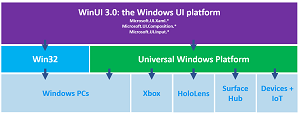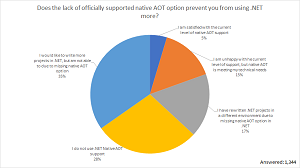News
Uno Platform v3.8 Adds Microsoft WinUI Grid Code, Windows AoT Support
In the new v3.8 release of the open source Uno Platform, a new grid control revamped with Microsoft code is said to provide a 2x performance boost. Other highlights include support for ahead-of-time (AoT) compilation on Windows, new CalendarDatePicker and CalendarView UI controls and more.
Uno Platform is a Microsoft partner that has gone all in on WinUI -- Microsoft's native UX platform for building modern apps for Windows 10 -- to the extent of fostering a #WinUIEverywhere hashtag on Twitter.
In fact, earlier this year, a Microsoft-hosted blog post titled "Build Cross-Platform apps with WinUI and Uno Platform" explained the niche that Uno Platform fills in the WinUI ecosystem: "With Uno Platform you can bring your WinUI apps everywhere that WinUI does not natively run -– Web/WebAssembly, Linux, macOS, iOS, and Android."
 [Click on image for larger view.] WinUI 3 (source: Microsoft).
[Click on image for larger view.] WinUI 3 (source: Microsoft).
With special access to WinUI source code, the open source Uno Platform can provide zero-day support of new Microsoft offerings (see "Uno Platform 3.5 Instantly Supports WinUI 3 Preview 4 as Part of #WinUIEverywhere"). And, in the new v3.8 update, Uno Platform borrowed Grid Class source code for that aforementioned grid control revamp.
"We have replaced our own Grid control implementation with the original WinUI Grid implementation, closing many issues related to discrepancies in behavior when comparing to apps running on Windows," Uno Platform said in a June 14 blog post. "As a result, and because the WinUI Grid code has been fine-tuned by Microsoft for many years, the new Uno Platform Grid performance has improved by 2x."
 [Click on image for larger view.] Grid Performance Boost (source: Uno Platform).
[Click on image for larger view.] Grid Performance Boost (source: Uno Platform).
Another update addresses AoT compilation functionality, something long awaited and much requested in the .NET dev community. .NET developers have been clamoring for AoT, something that Uno Platform provided for WebAssembly (the tech behind client-side Blazor) back in February 2020 (see "Uno Platform Claims First with WebAssembly AOT Compilation in Visual Studio"). Microsoft added AoT to Blazor WebAssembly last month.
 [Click on image for larger view.] "Does the lack of officially supported native AOT option prevent you from using .NET more?" (source: Microsoft).
[Click on image for larger view.] "Does the lack of officially supported native AOT option prevent you from using .NET more?" (source: Microsoft).
Uno Platform, meanwhile, just improved its WebAssembly debugger support and Windows AoT support, adding to existing Linux support.
As Uno Platform explained: "As the runtime support for WebAssembly was being developed, because of the original support for Linux from the emscripten tool, mono/mono and now dotnet/runtime were only supporting Linux for building AOT-enabled applications. On Windows, this meant for a while that you would need to install WSL to build such applications, as the Uno.Wasm.Bootstrap tooling would use it under the covers.
"The story has now improved significantly, and both the .NET runtime and emscripten are supporting Windows properly. Uno is now inheriting from that capability."
Other highlights include:
- CalendarDatePicker and CalendarView
- Performance boosts to DependencyObject and UI element creation
- Support for the Linux FrameBuffer and libinput for touch, mouse, and keyboard support
- Support for UniformGridLayout
- Support for App/Windows Activation and visibility support
- Support for Application.Exit (Gtk/WPF)
- Gtk support for pointer cursors
- Gtk/Wpf support for "Launcher.QueryUriSupportAsync"
- App templates for WebAssembly are now using .NET 5
- Support for iOS universal links
- Many documentation updates
"In addition to new UI and performance features and improvements, the team has closed 100+ issues," the June 14 announcement concluded. "Closing issues timely is crucial in further fueling large projects enabling customers like Kahua to port a massive line of business applications from desktop to Web. We are particularly proud of the fact that with every release we close more issues than have been opened in the previous period; it shows a healthy open-source project. A huge THANK YOU goes to all our contributors."
About the Author
David Ramel is an editor and writer at Converge 360.